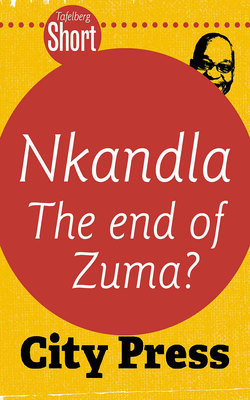Читать книгу Tafelberg Short: Nkandla - The end of Zuma? - City Press - Страница 10
На сайте Литреса книга снята с продажи.
The probe
ОглавлениеIn October 2012, as questions mounted about the state splurge on Nkandla, Parliament decided that the Public Works department’s report into the matter should be tabled before the Joint Standing Committee on Intelligence, which made it secret.
However, Public Protector Thuli Madonsela confirmed that she would investigate the state’s spend on Nkandla. She derives powers under section 8 of the Public Protector Act. Madonsela said her office had started taking steps to investigate because of a complaint lodged with her office a few months previously. DA parliamentary leader Lindiwe Mazibuko then lodged another complaint.
Madonsela’s probe came at a time when Zuma was campaigning to be re-elected as ANC president in December of that year. She has always been fearless in her probes of high-profile politicians, including Zuma, who she found against in 2010 for his failure to declare his financial interests. This probe, however, was beset with administrative pitfalls.
“Because of our resource constraints, the investigation hasn’t gone further than contacting the presidency,” Madonsela said right at the start. “We are asking the presidency who makes what decisions and who is accountable. This involves more than just Public Works.”
By mid 2013, in a ploy as sinister as it was cynical, Minister of State Security, Siyabonga Cwele, invoked the Minimum Information Security Standards to withhold from public scrutiny (including that of the Public Protector and the Auditor-General) its report on the “security upgrade” at President Jacob Zuma’s Nkandla residence.
A source close to Madonsela’s investigation said the Public Protector was also under pressure not to release the report publicly “because it could have far-reaching implications”, but Madonsela denied this. She told City Press through her spokesperson Kgalalelo Masibi: “The security aspect of the report has to be dealt with sensitively.”
In November of that year, Madonsela revealed how Cabinet ministers had tried to stop her, on numerous occasions, from probing the controversial upgrades.
“At a critical stage of the investigation into the Nkandla project, I regret to say that my office and its investigating team were frustrated, and in many instances obstructed in our efforts,” said Madonsela in her opposing affidavit filed against the state’s court application to prevent her from releasing her provisional report.
In the affidavit, Madonsela hit back at ministers Thulas Nxesi (public works), Siyabonga Cwele (state security), Nathi Mthethwa (police), Nosiviwe Mapisa-Nqakula (defence) and Jeff Radebe (justice) for attempting to stop the probe from the onset.
She also contended that there was no basis to the claim by the security cluster, made up of the mentioned ministers, that the report would compromise either Zuma’s security or that of the state. The affidavit also revealed that despite numerous appeals by Madonsela to be given a copy of Public Works’ own task team probe into the construction of Nkandla – which has been kept under wraps by Minister Thulas Nxesi – she was never given a copy to help her in her investigation. Instead, Madonsela was only allowed to view the “secret” report in the presence of government officials.
Her affidavit further revealed that Madonsela was told to suspend her probe because Auditor-General Terence Nombembe and the Special Investigating Unit were conducting similar investigations on Nkandla. But she declined the request because Nombembe informed her that he had also refused to investigate the matter and the SIU had not received any order, normally a proclamation by Zuma, for it to probe the Nkandla upgrades.
She has also lambasted the ministers for releasing the provisional report to officials against whom she may have found in the investigation and argued that the ministers acted “unconstitutionally” by trying to dictate how she should run her investigation.
“At no point did I abrogate to the security cluster or any state officials any entitlement to interrogate the exercise of my function in this respect. That of course would be unlawful and ineffective. The duty to ensure that any report I ultimately issue should be open to the public is one solely imposed on me, and specifically requires ‘exceptional circumstances’, in my opinion, for any report to be kept confidential.”
Madonsela said that her report was complete, but that she wasn’t sure who to give it to. She said she wasn’t sure whether to submit the report to Zuma. Ordinarily, her reports implicating cabinet ministers are handed to Zuma as head of the executive.
At the end of November 2013, a reported leak to the Mail & Guardian hinted that Madonsela would find Zuma benefitted "substantially" from Nkandla. Madonsela said the leaks were not from her office and announced plans to curb the leaking of her provisional reports. Meanwhile, the M&G defends its right to publish the leaked material.
In December, An inter-ministerial task team report into the upgrades is released which exonerates Zuma, saying he did not ask for the upgrades.
On 19 March 2014 Madonsela’s report was finally released.
